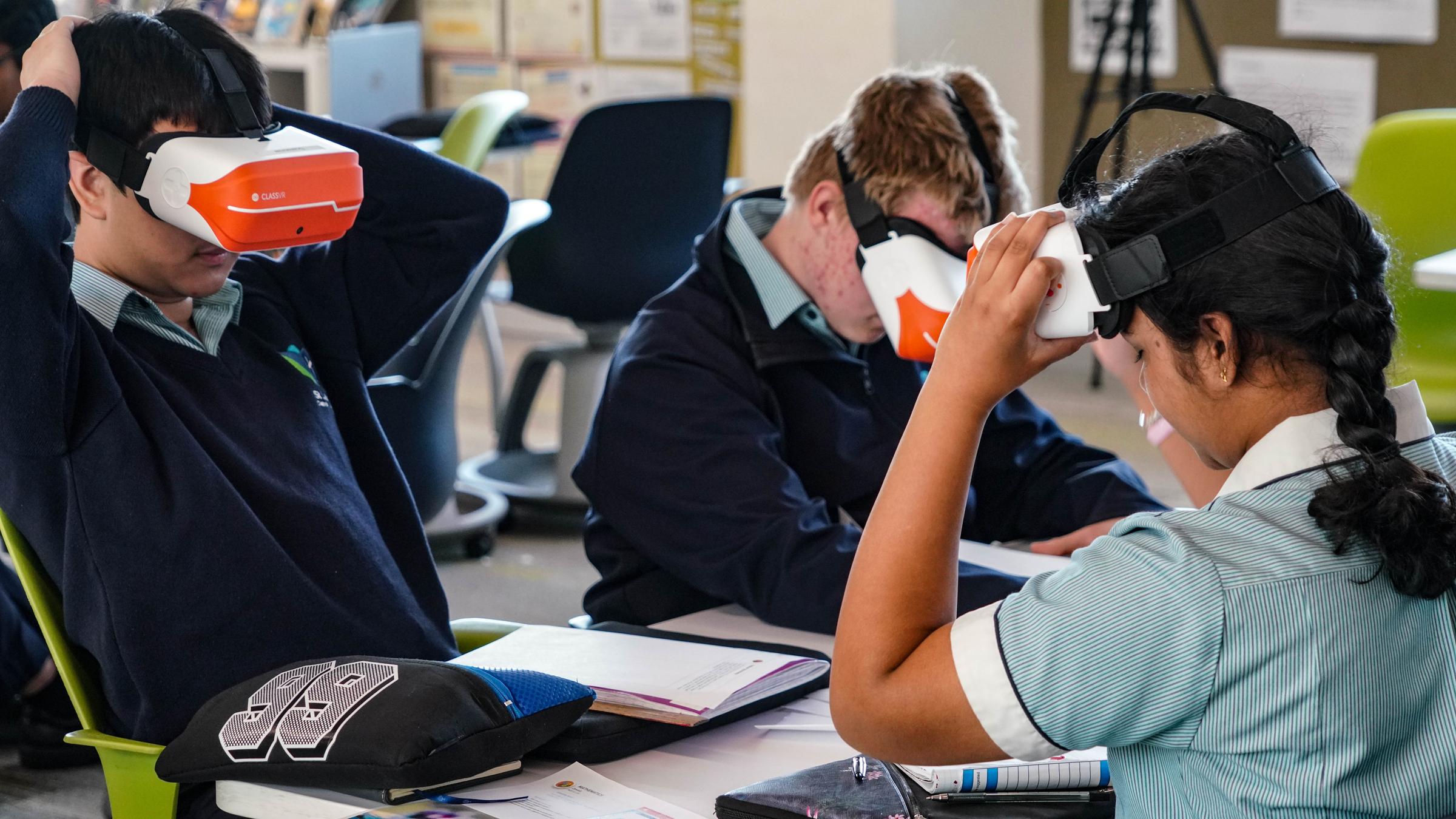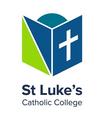
School of Leadership
Access to Canvas Learning Management System
Please find attached instructions to access canvas for parents. If you are having any difficulties in connecting with the system, please email stlukesict@parra.catholic.edu.au
to assist.
Dig into Reading
Dig into Reading is a reading comprehension program run everyday in Stage 3 by our Diversity Teacher, Cara Schepel. The program gives students an opportunity to explore a wide range of texts and improve their skills in reading. The program also involves students reading regularly for enjoyment at home each night. It has been very successful at St Luke’s and other schools in improving and reframing the way students approach and understand texts by giving them lots of practise in small groups and modelling evidence-based reading strategies.
Reading is like riding a bike; it becomes easier with practise and experience.
Last week we focused on inferring and making connections when we read. Students read a section from Liars: The Truth App (by Jack Heath) and examined the text for clues and connections to help them make sense of the text. We look forward to our time together each day! I wonder what we will read next?
Stage 3 Religion
Our inquiry this term in religion has been “How does free will give me the opportunity to live a flourishing life?” This line of questioning is inspiring children to think about who and what influences them in their decision making, where we can look for guidance and how we can create our own personal philosophy statement to help guide us to live a flourishing life.
Students in Stage 3 are exploring how their decisions and values are influenced by others. They have identified the people in their inner, middle and outer circles of influence and described how they have influenced their personal decisions and values.
For each of the five people in their inner circle, students answered the following questions:
Do these people want the best for me?
Do their values align with my values?
Do they increase my energy levels?
Can I provide value to them?
Students answered the following questions for the five people in their middle circle.
How often do I ask this person for advice when making decisions?
Do I share the same values?
Do I feel as if I can be myself with this person?
Does this person feel the same way about me?
Students completed the outer circle by choosing people who influenced their decision making without having any direct contact with them. In groups of 4, students researched one of the modern influencers. Some of the influencers chosen by students are St Teresa of Calcutta, St Mary of the Cross Mackillop, Pope Francis, Malala Yousif, Nelson Mandela, Cathy Freeman, Fred Hollows, Nicholas James Vujicic and Aristotle.
Students will be using their prior knowledge of virtues, acquired knowledge of influencers and the 'Beatitudes' from the Scripture to develop a better understanding of how the free will can help them to live a flourishing life.
Here are what some of our students said about Saint Mary Mackillop and how she inspires and influences them:
Stage 3 Mathematics
Children have been investigating different number patterns so that they could describe the pattern. They are learning that they need this information so that they can create a rule to find any part of the pattern. This site provides some insights into the variety of patterns children can familiarise themselves with.
We have also been learning about Cartesian planes, their quadrants and coordinates, so that we can represent solutions in 2 dimensional space.
The number plane or Cartesian plane is like two number lines that cross at zero; one of them is horizontal and the other is vertical. The Cartesian coordinate system is used to plot points.
The Cartesian plane is named after the French mathematician and philosopher René Descartes (1596–1650), who introduced the coordinate system to show how algebra could be used to solve geometric problems. You may be familiar with the phrase, “I think, therefore I am,” which is also credited to him.
Stage 3 English
Students were required to complete speeches on a social justice issues. Below is a snippet of one of the speeches:
The snippet has evidence of some of the language features that students were expected to include in order to be successful.
Stage 3 Geography
Stage 3 has been investigating our driving question “How do we as virtual voyagers, explore and share our neighbours' culture?” We are exploring the different aspects of culture of countries in Asia whilst developing our geographical skills.
We started with a great introduction from Mrs Burns on how we can create our own virtual reality tour using CoSpaces and Google Earth and then we got to experience the virtual reality tour using the VR headsets. We then moved on to investigating the aspects of cultural and physical landmarks and what makes them significant. We explored the cultural connections to these landmarks and created our own interactive tour through Google Earth.
Our next step was to explore different types of maps and their cartographic features using some old fashioned printed maps, street directories and atlases. It was fascinating seeing the information we could gather from these traditional maps, some printed from as far back as 1978! We were able to compare images from Google maps to see how the Blue Mountains area has changed over time and imagine what may have caused these changes.
At present we are continuing our research into the culture of our chosen countries and creating a website as a platform to present our virtual tour. There has been a lot of enthusiasm and engagement as we not only learn more about the culture of our neighbouring countries, but we get to try new and exciting ways to present our findings using 360 degree images, virtual reality and interactive maps.
We can't wait to share our virtual tours with you at the completion of our project!
Stage 4 RE
In Stage 4 Religious Education, students have been investigating ways in which human dignity has been challenged within Australian history. They recently watched a video of Kevin Rudd's apology to the Indigenous people on 13th Feb 2008. Students then answered the question, "How can we respect and uphold dignity towards the Indigenous community?" Students also examined a section of St John Paul II’s speech to Indigenous people in Alice Springs in 1986. This activity helped them to recognise the Church's acknowledgement of the efforts of Indigenous Australians to preserve their culture, language, rights, land and other resources.
The Catholic Social Teaching, 'The Common good' and its link to human dignity is being explored by students to know how different organisations like Vinnies and Jesuit Social Service are reaching out to people in need. The students will be initiating a project to bring awareness to other students of issues such as poverty, disability, homelessness, women's rights and refugees and asylum seekers.
Stage 4 Technology
Year 7 are currently finishing a project that they started Pre-COVID, the downforce racer. Students worked in teams to iterate a design process that discovered “what makes the best car”. Students learnt how to design a template, laser cut, solder a motor and test and redesign their car to improve it. Of course, cars go fastest when they look good also, so students spent some time making sure that their car stood out the most. Students raced their car and created an infographic that justified why their car was the best.
Year 8 have completed their unit of work which saw them develop games in CoSpaces using AR and VR. Last week students were able to have small groups come and play their games and provide feedback. Try out one of the students' games below.
Game example - https://edu.cospaces.io/TQV-XEY
Stage 5 RE
In religion, we have been learning about the Indigenous culture and spirituality. We have been able to develop our understanding of the Indigenous culture through many ways of learning such as analysing Dreaming stories. One of the most effective ways of learning was having someone come in to share and teach us about the Indigenous culture.
On Monday the 24th of August we had a visit from Josh Sly from Jarara. We had previously had a lesson/workshop with him on Indigenous culture and spirituality in order to support our learning and to answer any questions or wonderings that we had. The lesson that we had on Monday was about the acknowledgement of the country. From this lesson we were able to gain a deeper understanding of what the acknowledgement of country is, and how and why it is significant to the Indigenous people. During the lesson we started off with watching a video that Josh had provided and it was of an Aunty that was talking about a Dreaming story, as well as another video which was of an Uncle talking about the land. After we had watched this we proceeded to start planning our own acknowledgement of country that was unique to our St Lukes community. We were split into groups of four and we created a brainstorm on what specific words and/or phrases that we could include into our acknowledgement of country. During this time we were also allowed to make connections to our school community and ways that St Lukes can live out the words of the acknowledgement of country. Groups were able to identify connections and ways of adopting new ways of living in light of the Traditional Custodians of the land to display Hope for the future and generations to come. This workshop was very significant not only for our learning but our understanding of the history and perspective of Indigenous Australians. It also allowed for us to delve deeper into our thoughts and critically think how we can turn our words into actions.
Natalia Hodgson Year 9




















